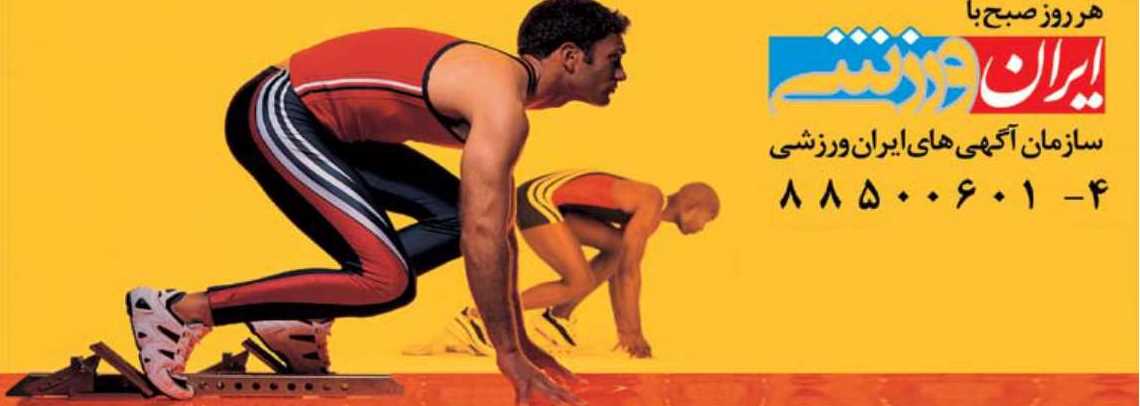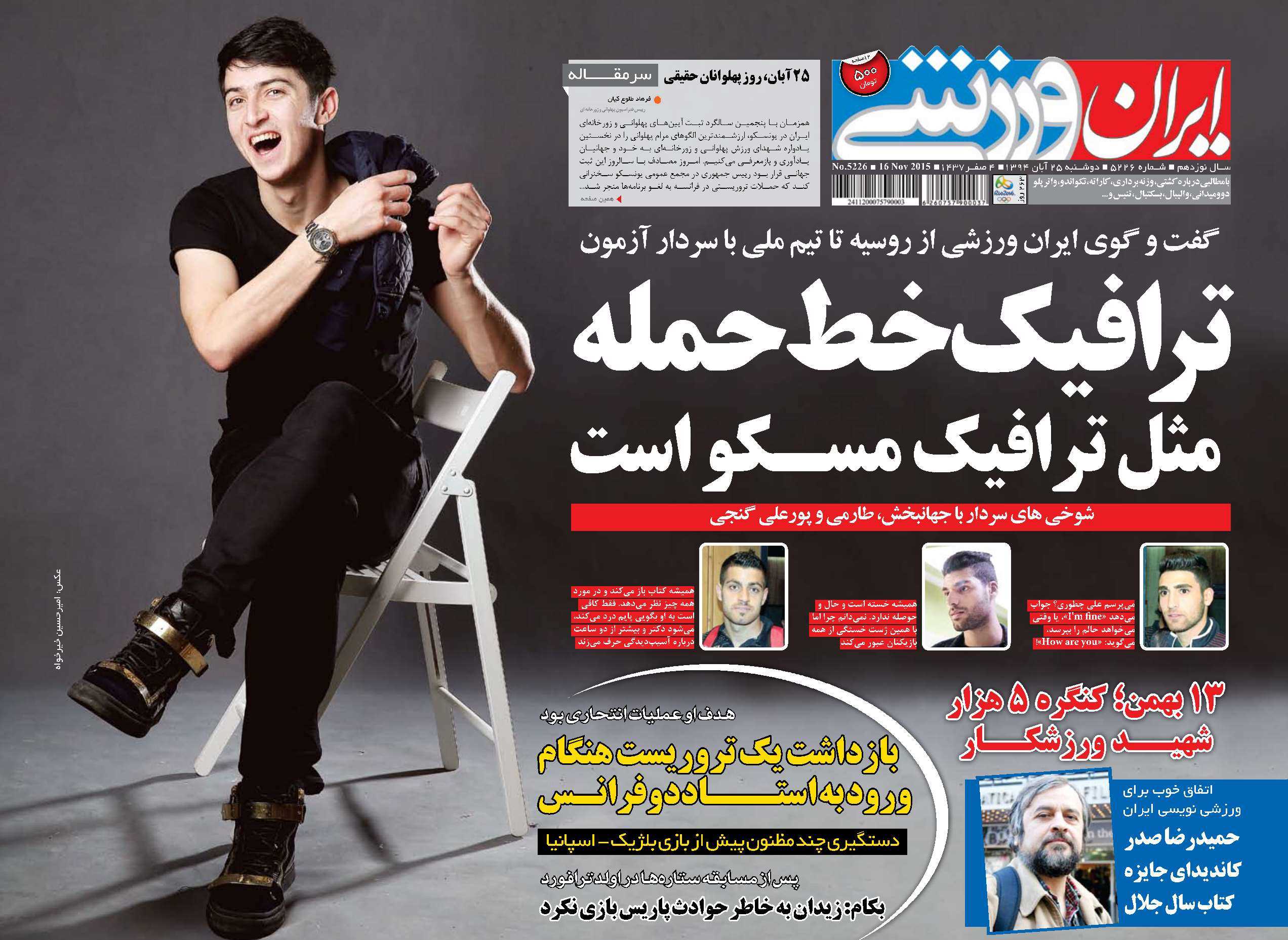سرمقاله
قرض و تمجید از اسپانسر از عجایب باشگاهداری
فرشاد کاسنژاد
کشمکش در هیأت مدیره باشگاهها در موضوع انتخاب اسپانسر نمیتواند از یک جریان پویا و سالم اقتصادی خبر بدهد. چیزی شبیه یک جدال بین مدیران باشگاه در جریان است که در آن منافع باشگاه چندان مد نظر نیست بلکه مناسباتی دیگر و روابطی خارج از روابط حرفهای باشگاه و اسپانسر در تعیین اسپانسر نقش دارند.
پرده دیگر ماجرا این است که اعضای هیأت مدیره استقلال و پرسپولیس بارها از کمکهای اسپانسرها تقدیر و تشکر میکنند و معلوم نیست چرا اسپانسر باید پس از هر بار پرداخت پول به باشگاه مورد تمجید قرار بگیرد و چرا روابط باشگاه و اسپانسر در چارچوب قراردادها تنظیم نشده و هر بار موضوع قرض گرفتن مطرح میشود. مدیران باشگاهها بارها گفتهاند که اگر کمک اسپانسر نبود، فلان سفر یا بهمان پرداخت به بازیکنان مقدور نمیشد و شأن باشگاهی با تاریخی به قدمت چندین دهه را آنچنان نازل میکنند که انگار بدون کمک اسپانسر باید اعلام انحلال میکردند. در حالی که این نتیجه مدیریت شماست که باشگاه را هر بار به اوج بحران مالی میرسانید، بدهیهای بزرگتر خلق میکنید و بعد میخواهید با قرض و تعهدات بیپشتوانه باشگاه را اداره کنید. اینها ابهامات کوچکی در باشگاهداری نیستند و میتوانند نشانههای واضحی از روابط غیرحرفهای بین مدیران باشگاه و اسپانسرها باشند. حتی اغلب استفاده از واژه اسپانسر برای تعریف مفهوم روابط باشگاهها و این شرکتها منطق اقتصادی ندارد و کاربردی غلط از این واژه در ادبیات باشگاهها مرسوم شده است. هیچکس شفاف نوع این روابط و قراردادها را توضیح نمیدهد و میزان درآمدها نیز همیشه مخفی است. چنین روابطی آگاهانه یا ناخودآگاه میتواند فسادآور باشد و لازم نیست از اشاره به فسادآوری این جریان پرهیز کنیم. استقلال و پرسپولیس هر روز خبرهایی را درباره قرارداد با اسپانسر جدید میسازند، هر روز خبری میشنویم که به توافق رسیدهاند یا نرسیدهاند، هر روز خبر فسخ قرارداد پیشین و امضای قرارداد جدید میرسد و هیچکس پاسخگو نیست که چرا این قراردادها کوتاهمدت هستند و این همکاریها دوام ندارند؟ تعطیلات فوتبال به دلیل شیوع ویروس کرونا میتواند قراردادها را با مشکلاتی مواجه کند و خسارتهایی برای باشگاهها داشته باشد، چون اسپانسرها بخشی از فرصتهای تبلیغاتی خود را از دست دادهاند اما هیچ توضیح شفافی درباره قراردادها و آثار اقتصادی تعطیلی فوتبال ارائه نمیشود. فوتبال ایران از تعطیلی فوتبال متضرر نمیشود بلکه برگزاری بازیها زیانآور است. این چه فوتبالی است که با هیچ نظمی سازگار نیست؟ شفافیت اقتصادی در این باشگاهها بهترین راه برای برداشتن قدمهای تازه است. فقط با شفافیت حسابهای باشگاه روشن میشود که چه ظرفیتهایی وجود ندارد و باشگاهها در چه اموری بدهیهای بزرگ و بیجا خلق میکنند تا مجبور به استقراض و پیشخور کردن درآمدها و تعریف و تمجید در وصف اسپانسرها باشند، اسپانسرهایی که عملکرد و روش آنها نیز شفاف نیست. اطلاعات رسانهها از این جریان مخفی ناچیز و غیرمستند است و در چنین فضایی که پر از ابهام شده، نمیتوان با واقعیتها مواجه شد و دریافت که چه آیندهای پیش روی باشگاههاست.
مصاحبه
مهدی: میزبانی جام ملتها
شایسته فوتبال ایران است
اعلام آمادگی ایران برای میزبانی از جام ملتهای آسیا در سال 2027، واکنشهای مختلفی را در پی داشته است. سهیل مهدی، سرپرست کمیته مسابقات لیگ برتر فوتبال، این تصمیم را یک استراتژی درست و اصولی میداند که منجر به پیشرفت و توسعه امکانات در کشور میشود.
مهدی میگوید: «کسب میزبانی جام ملتها قطعاً آسان نخواهد بود اما این اتفاق وابسته به فدراسیون فوتبال یا تنها وزارت ورزش نیست، پروژه عظیمی است که باید به عنوان یک هدف ملی شناخته شود و با کمک دولت و مجلس محترم، شهرداریها و وزارتهای مربوطه یک حرکت عظیمی برای تحقق این امر آغاز شود. جامعه فوتبال در این مسیر نقش حمایتی داشته باشد و با تأکید بر اهمیت رسیدن به چنین موفقیت بزرگی کمک کند تا با گرفتن میزبانی امکانات فوتبال کشور توسعه و پیشرفت پیدا کند، اتفاقی که شایسته فوتبال مستعد ایران است و میتواند انقلابی در پیشرفت فوتبال کشور محسوب شود.»































